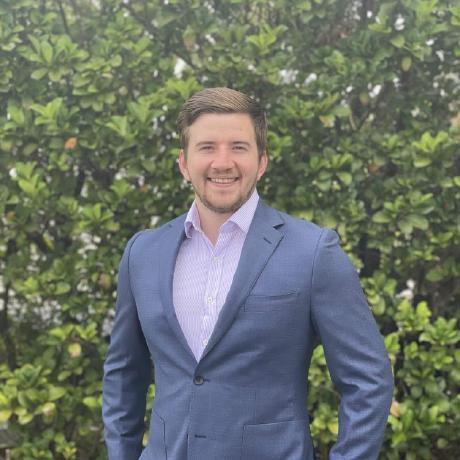Contacts
Last updated: 2025-02-24
Checks: 2 0
Knit directory: analysis-user-group/
This reproducible R Markdown analysis was created with workflowr (version 1.7.1). The Checks tab describes the reproducibility checks that were applied when the results were created. The Past versions tab lists the development history.
Great! Since the R Markdown file has been committed to the Git repository, you know the exact version of the code that produced these results.
Great! You are using Git for version control. Tracking code development and connecting the code version to the results is critical for reproducibility.
The results in this page were generated with repository version c9db666. See the Past versions tab to see a history of the changes made to the R Markdown and HTML files.
Note that you need to be careful to ensure that all relevant files for
the analysis have been committed to Git prior to generating the results
(you can use wflow_publish or
wflow_git_commit). workflowr only checks the R Markdown
file, but you know if there are other scripts or data files that it
depends on. Below is the status of the Git repository when the results
were generated:
Ignored files:
Ignored: .DS_Store
Ignored: analysis/.DS_Store
Ignored: analysis/data/
Ignored: analysis/figure/
Unstaged changes:
Modified: workflow.R
Note that any generated files, e.g. HTML, png, CSS, etc., are not included in this status report because it is ok for generated content to have uncommitted changes.
These are the previous versions of the repository in which changes were
made to the R Markdown (analysis/0_contacts.Rmd) and HTML
(docs/0_contacts.html) files. If you’ve configured a remote
Git repository (see ?wflow_git_remote), click on the
hyperlinks in the table below to view the files as they were in that
past version.
| File | Version | Author | Date | Message |
|---|---|---|---|---|
| html | af42fba | DrThomasOneil | 2025-02-24 | Build site. |
| html | 1aeefc7 | DrThomasOneil | 2025-02-20 | Build site. |
| html | 5fe30de | DrThomasOneil | 2025-02-20 | Build site. |
| html | 5ef4f12 | DrThomasOneil | 2025-02-11 | Build site. |
| html | f48f4f0 | DrThomasOneil | 2025-02-10 | Build site. |
| html | 3bfe847 | DrThomasOneil | 2025-02-10 | Build site. |
| html | b14f3b5 | DrThomasOneil | 2025-02-10 | Build site. |
| html | bfba3e0 | DrThomasOneil | 2025-02-07 | Build site. |
| html | f3d6f87 | DrThomasOneil | 2025-02-04 | Build site. |
| Rmd | 525ffe6 | DrThomasOneil | 2025-02-04 | wflow_publish(c("analysis/*.Rmd")) |
| html | f654b8d | DrThomasOneil | 2025-02-04 | Build site. |
| Rmd | e6ea78d | DrThomasOneil | 2025-02-04 | wflow_publish(c("analysis/*.Rmd")) |
| html | 4968925 | DrThomasOneil | 2025-01-30 | Build site. |
| html | 299ff3d | DrThomasOneil | 2025-01-28 | Build site. |
| Rmd | 272b312 | DrThomasOneil | 2025-01-28 | wflow_publish(c("analysis/*")) |
| html | 023005d | DrThomasOneil | 2025-01-07 | Build site. |
| Rmd | 0ecb65d | DrThomasOneil | 2025-01-07 | Updated Getting Started in R. Chapter 1 completed |
| html | c893d70 | DrThomasOneil | 2025-01-06 | Build site. |
| Rmd | 8eec2ce | DrThomasOneil | 2025-01-06 | Initial Deployment |
| html | 660b0f8 | DrThomasOneil | 2025-01-06 | Build site. |
| Rmd | 7cb1531 | DrThomasOneil | 2025-01-06 | Initial Deployment |
| html | 2e79a1d | DrThomasOneil | 2025-01-06 | Build site. |
| Rmd | 451a21f | DrThomasOneil | 2025-01-06 | Initial Deployment |

Dr. Thomas O’Neil
Postdoctoral Researcher ✉: thomas.oneil@sydney.edu.au
I have been with the Mucosal Immunity lab at WIMR since my honours year in 2018. I completed my PhD in 2023 and am now a post-doc in the same lab. Initially, my studies involved characterising anogenital T cells by flow cytometry, but having learned analytic programming during COVID, I now study all aspects of human tissue immunology via high-parameter proteomic and transcriptomic bioinformatic approaches. Specifically, I’ve been involved in identifying rare immune cell subsets and defining their roles in initial HIV infection. Recently, I’ve been developing and applying bioinformatic methods to investigate immune cells in inflamed and uninflamed human tissues using spatial technologies (IMC, Xenium & Visium).

Harry Robertson
PhD Candidate
Harry Robertson is a research student and aspiring bioinformatician at WIMR who was recently awarded a Fulbright Future Scholarship (Postgraduate) hosted by Harvard University. His Fulbright research focuses on identifying biomarkers for organ transplant health using advanced imaging techniques. Unlike traditional biomarkers, which often require expensive sequencing and are inaccessible to many, Harry’s innovative approach leverages machine learning to analyse imaging data, aiming to develop a universally available, non-invasive diagnostic tool for transplant recipients.
Harry envisions a future where healthcare decisions are informed by comprehensive patient data: ‘my goal is to make this vision a reality by developing accessible biomarkers for organ transplant health.’


